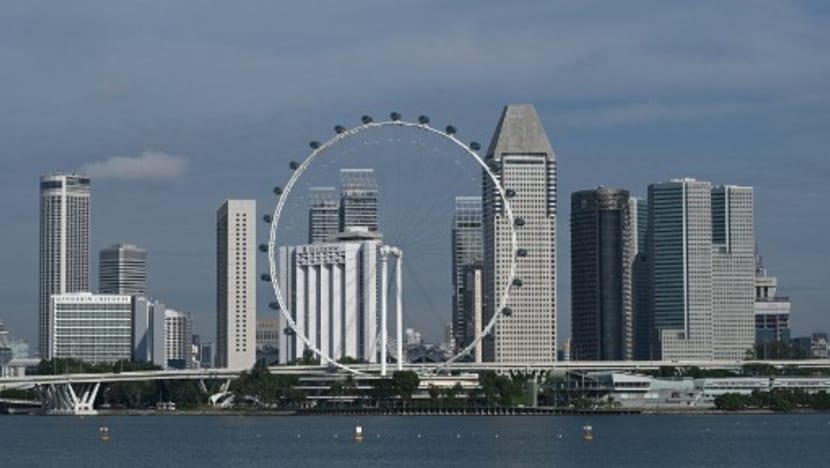Which S-REITs look likely to perform better in 2022
S-REITs or real estate investment trusts turned a corner in 2021 – earning returns of more than 6 per cent after dropping over 2 per cent in 2020. As Singapore continues to reopen, Money Mind looks at which S-REITs investors can consider.

A general view shows the skyline of the financial business district in Singapore on Oct 20, 2021. (Photo: AFP/Roslan Rahman)
SINGAPORE: It has been 20 years since the first real estate investment trust (REIT) was listed on the Singapore Exchange in 2002.
Since then, REITS have become a staple of portfolios for investors who are attracted to the dividends and generally low risk.
In 2021, S-REITs generated a 6.2 per cent total return, compared to the STI’s total return of 13.6 per cent.
Some REITs outperformed the STI. They include ARA LOGOS Logistics Trust (59 per cent), First REIT (57 per cent) and Starhill Global REIT (39 per cent).
Market watchers remain optimistic about the S-REIT landscape going forward.
"We see the outlook for the sector brightening on the back of steady economic growth and with more easing of COVID-19 measures," said Mr Vijay Natarajan from RHB Securities.
"This should have a positive impact on the REITS' operational performance," he added.
With more office workers now able to return to workplaces, business areas are already seeing an uptick in footfall.
The rise of co-working spaces has also added another layer of flexibility for companies who may not want all their workers to return to the traditional office.
“There are a lot of employers who are still a bit uncertain at this moment about how many people will be working in the office space at this point of time, or what kind of timeline we’re looking at for a complete return to office," said Mr Natarajan.
"So, these players are also tapping into the co-working sector. Despite COVID-19, co-working sector players have been actively expanding their office footprints in Singapore. Thus, while the future of office looks hybrid, it necessarily doesn’t mean that office space is dead, and it will very much be a part of the real estate ecosystem,” he added.
On the supply side, manpower disruptions in the last two years due to the pandemic have caused delays in the completion of some new office buildings and redevelopment projects.
This has also kept office demand tight, which is good news for REITs.
Mr Alan Cheong, executive director of research and consultancy at Savills Singapore, said that going forward, landlords of older buildings are likely to take such properties off the market for redevelopment or refitting.
If this coincides with a mass return of office workers to the central business district, the resulting lack of supply of new office buildings could lead to a spatial crunch and skyrocketing office rents.
By sector, retail and office REITs were in negative territory in 2020, then reversed course in 2021.
Looking ahead, analysts said investors should focus on reopening plays such as mixed commercial REITs, retail, hospitality, industrial, and those with logistics exposure.
"Do not be afraid of corrections. In fact, be greedy when everybody is afraid," said Mr Derek Tan, head of property research at DBS Group Research.
Savills Singapore’s Mr Cheong added that data centres will still be in demand at least for the next few years because of the heavy data outlook that technology is bringing about
"So that should be still something that’s going to be favoured," he said.
RHB’s Mr Natarajan’s added: "We expect REITs, particularly some large-cap REITs, as well as stocks with specific catalyst in sectors such as industrial, office, and retail and commercial to continue to outperform. The wild card would be the hospitality sector REITs. We believe that the hospitality recovery is only expected in 2023, so possibly in the second half of 2022, it could be a thing to watch out for hospitality sector REITs.”

















